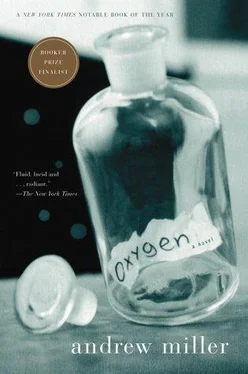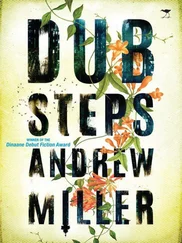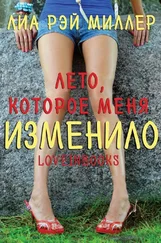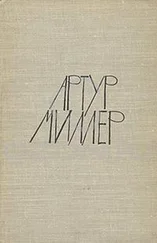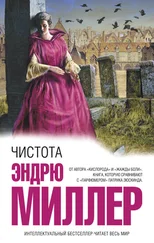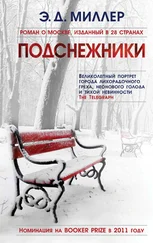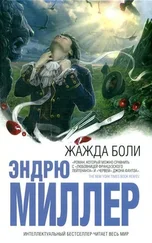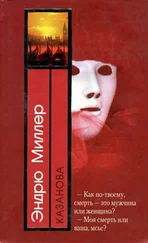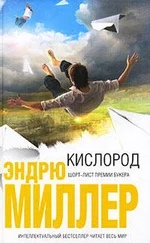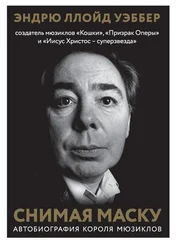‘How romantic,’ sighed Kurt.
‘I remember she was wearing red knickers,’ said Franklin. ‘Somewhere between carmine and maroon, to be exact. It was hard to tell with the light.’
‘Franklin!’ exclaimed Laurence. ‘You could only have seen them because you made me climb into the Luxembourg with you.’
‘She was very beautiful then,’ said Franklin.
‘She’s beautiful now,’ said Karol.
Franklin nodded. ‘László remembers.’
‘Now you’re maudlin,’ said Karol.
‘László?’ said Laurence. ‘I wonder if I could guess your happiest moment.’
‘I’m sure you could,’ said László, ‘for I must have told you more than once. A day in November 1953 when Hungary played England at soccer in London. Wembley Stadium. No one had beaten the English on their own ground. What hope did a country like Hungary have? The government, of course, wanted victory as a vindication of the system. Real Hungarians just longed to be noticed in the world so people would see that Stalin and Rákosi had not buried us entirely. But to win at Wembley. Impossible! Yet we wanted it so badly we thought we could will it to happen. Perhaps we did. Anyway, that afternoon a kind of miracle occurred. Hungary won six goals to three!’
‘Hurrah!’ sang Karol, who of all the others understood best what the victory had meant.
‘Everyone was listening to the radio, those big Oriens, and every time we scored you could hear the cheering coming from all the apartments, and from the street too. It was, in my humble opinion, the greatest moment in the history of Hungarian sport. I was fifteen. Everyone was so happy it could have been midsummer’s day. Ferenc Puskás was the hero of our team. I used to know the name of the English captain. Hight… Bight…’
‘Most of the team left after ’56.’ said Karol.
‘Yes. Czibor and Kocsis played in Barcelona. Puskás joined Real Madrid but he went back in ’81, back to Hungary.’
“Well, almost a happy ending,’ said Franklin. ‘Give or take a revolution or two.’
‘ Egeszsegedre!’ cried Kurt, who had learnt a dozen words of Hungarian. They raised their glasses.
Karol was the eldest of them. He said that each phase of a life had its own kind of happiness. From childhood he could remember sleeping on his mother’s lap in the kitchen – the sheer animal comfort of the warmth of the stove and of the woman who of all women will love you best. Then, in the Prague Spring, there was the excitement of resistance, the erotic fervour of revolt, the thrill of being really afraid. The opportunity to be brave! Later, the sober happiness of work, of writing books and seeing them admired and respected. Lucidity. The satisfaction of a profound ambition achieved. The relief at not having failed.
‘And lastly,’ he said, knitting his thick grey brows, ‘there is a happiness that is truly floating, and is very hard to name, for it blows around the world like a magic dust. You know, it happened to me just a few weeks ago. I had given a reading in Dusseldorf. I met some old friends there – you know Krüger, László – and had a glass or two of wine, no more. Then the car came to take me to the station and we drove through a part of the city I didn’t recognize. It was a cloudy spring afternoon, quite cool and breezy. I was thinking about the most ordinary matters. What I would read on the train. Whether I would have time to call my daughter. I looked out from the side window of the car. We were crossing a bridge, a very ordinary stone bridge, not in any way beautiful or remarkable. And quite suddenly I experienced a sense of wellbeing that overwhelmed me in the way certain melodies heard at just the right moment can do. It lasted no more than a few minutes. It felt as though I had been seized by the present and shaken out, or had sensed – forgive me – my own immortal soul, something I find hard to believe in most days of the week. And all the while my driver made his way through the traffic quite oblivious to this little epiphany taking place behind his neck.’
László glanced up at the bookshelf, where the shot volume of Rilke was hidden in the shadows.
‘“And we,” he began, “Who always think / of happiness rising / would feel the emotion / that almost startles us / when a happy thing falls. ”’
Karol, embracing them all, left just after midnight. Franklin and Laurence followed a few minutes later, everyone in a mood of gentle melancholy at the recollection of joys that belonged to such a distant past. Kurt and László stacked the dishes in the kitchen, then Kurt retired to the bedroom where, before bed, he would perform certain complicated yoga exercises. László went back into the dining room, turned off the lamp and extinguished with wetted fingertips two of the candles. He did not feel tired. He sat in the light of the remaining candle. The Calvados had given him slight heartburn, and the discussion of happiness had set him off on an arc of thinking he would have to reach the end of before he could rest. It was true, the stories in themselves were somewhat banal – a fish, a tin of soup, running out of a bar, a soccer match – but happiness was a subject as elusive as love, and one that required a similar subtlety of lexis and category. To begin with, it could be divided into two broad types: the happiness when you know yourself to be happy, and that which is only apparent afterwards , the type Franklin had described with the young soldiers on the beach. Then there was public happiness, such as the day of the football match, joy reflected back from the faces of everyone he saw. And secret happiness, as when he was in love with Peter, almost a burden, as though he had won the lottery yet could share the news with no one. Pure happiness was rare, confined in most cases to infants, drug fiends and religious ecstatics. More common, though just as disturbing, was the condition Karol had touched upon – happiness woven into its opposite; that paradox of wars and revolutions when the heart is so inflamed it gives birth to entirely new emotions. Terror-bliss. Grief-lust. Tender, sentimental hatreds. In Hungary that year, the year the Russians came back, as many as three thousand lost their lives and thousands more their liberty. Yet those who had been there – most of them – were glad of it, proud of their effort and their sacrifice. They had played their part: history had not caught them unprepared. And while nothing could compensate them for the loss of their country and their friends, the remembrance of those October and November days was an article of faith.
But for László, this was not the case at all. How could he look back when there was only shame to look back on? What pride could he take in consummate failure? No. He did not want to remember. He wanted to forget. To forget for ever. Yet each year the effort of it was suddenly inadequate, and the past overwhelmed him, though rarely so thoroughly as during the previous winter when, with much reluctance, he took part in the fortieth anniversary celebrations in Paris. He had always managed to avoid these get-togethers, taking care to be out of the city, and telling whoever bothered to ask that he was allergic to nostalgia. But on this occasion he had received too many pressing invitations to have stayed away without causing offence, and so he had gone with Kurt in the Citroën to Père Lachaise cemetery to stand at the empty ‘grave’ of Imry Nagy, and then on to the hotel by the Gare de L’Est where, between wedding receptions, the veterans had the use of the banqueting hall.
All around László were men and women in the vigorous last third of their lives, many of them with the manner and aspect of professionals, all of them highly respectable. Greying, a little overweight, dressed in suits and dresses from French department stores, these were the freedom fighters who had flung Molotov cocktails into the engine grilles of T-34s; who had fought pitched battles at the Corvin Passage, at Szena Square, and Csepel, and seen friends, fellow workers, neighbours slain in shell-bursts or mown down in a food queue by a passing armoured car. The stories they told, the same they must have been telling each other for decades, they told again as if for the first time, and with the earnestness of people who must explain the whole truth in a single charged anecdote, or risk losing their dead a second time, burying them not in earth, but in silence.
Читать дальше
